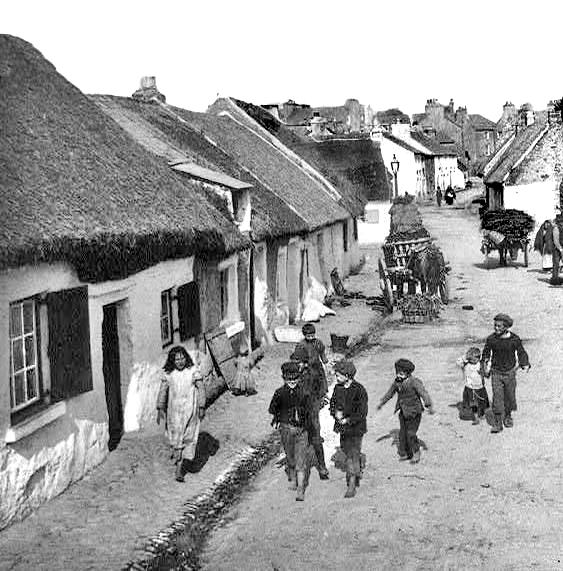
Irish Economic History: Irish Free State (1920s-30s)

Figure 1.--The Irish Free State (IFS) inherited a poverty stricken economy, a situation for which England was largely responsible amd which had forced much of the population to emmigrate. IFS leaders believed that they could oversee a renakable economic bloosoming. In fact Ireland remained an economic failure.
|
|
Ireland did not fully separate from Britain after the agreement leading to the Irish Free State (IFS) ratified (1922). The IFS did achieve complete fiscal autonomy from Britain. Ireland's new leaders assumed that the economy would suddenly begin to grow once British control was ended. The Irish had good reason to believe that Britain over time had harmed the Irish economy. But the idea that the economy would suddenly improve was misplaced. Successful, productive economies just do not happen. And the policies adopted are critical. And the Irish economy performed very poorly in the inter-War era compared to the British and European economies. The IFS did attempt to promote economic growth. They tried to increase agricultural exports (1920)s. And adopted import substitution and protectionist policies. Ireland was hampered by the small size of the market and the lack of raw materials which this had to be imported. Protectionist policies are less efective for small countries with few natural resources. In addition, while the IFS had the authority to adopt fiscal and economic policies, the country remained dependent on Britain. Both labor and capital continued to move to the more productive British economy. Furthermore, Ireland’s continued economic dependence on Britain led to labour and capital migrating to the more powerful British economy in the following decades, preventing any meaningful development. The Second World War only made matters worse. The “Emergency” resulted in a far greater economic crisis than our current predicament, as food and fuel supplies contracted and only unprecedented levels of state intervention in supplies, distribution and production averted a major catastrophe.
Sources
CIH

Navigate the Boys' Historical Clothing Web Site:
[Return to the Main Irish economy page]
[Return to the Main Irish page]
[Return to the Main European country economy page]
[About Us]
[Introduction]
[Animals]
[Biographies]
[Chronology]
[Climatology]
[Clothing]
[Disease and Health]
[Economics]
[Ethnicity]
[Geography]
[History]
[Human Nature]
[Law]
[Nationalism]
[Presidents]
[Religion]
[Royalty]
[Science]
[Social Class]
[Bibliographies]
[Contributions]
[FAQs]
[Glossaries]
[Images]
[Links]
[Registration]
[Tools]
[Children in History Home]
Navigate the Boys' Historical Clothing kilt pages:
[Scottish kilts]
[Scottish boys clothing]
[Scottish school uniform]
[Highland dance]
[Irish kilts]
[Irish step dancing]
[Pipe bands]
[Greek kilts]
Created: 3:58 AM 5/26/2019
Last updated: 3:58 AM 5/26/2019


